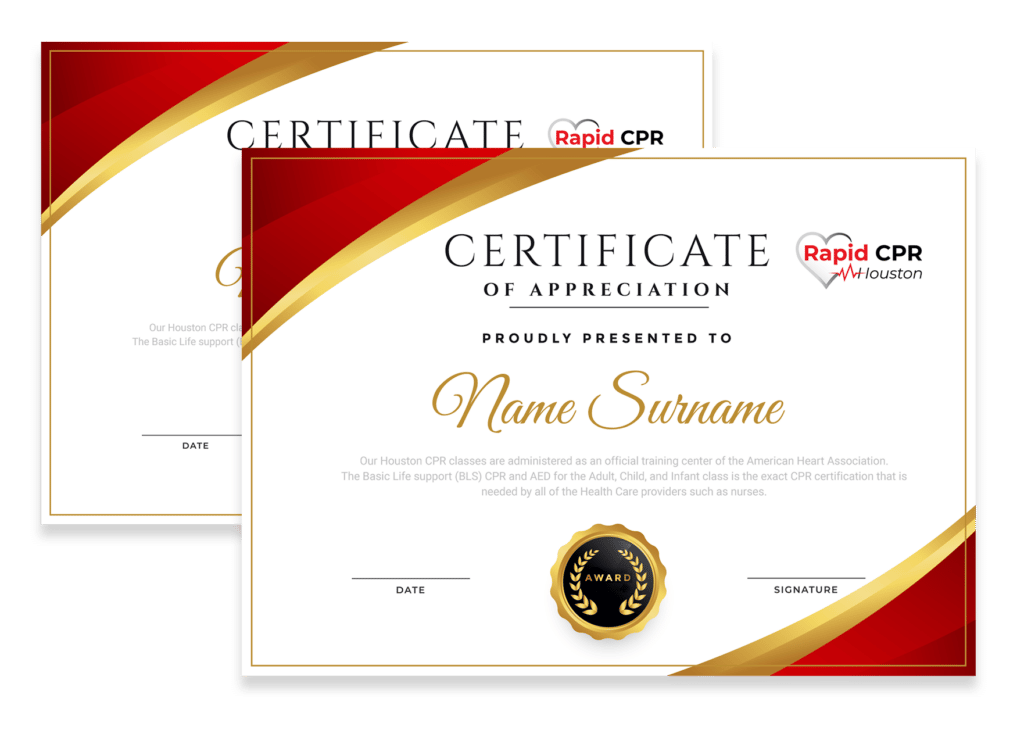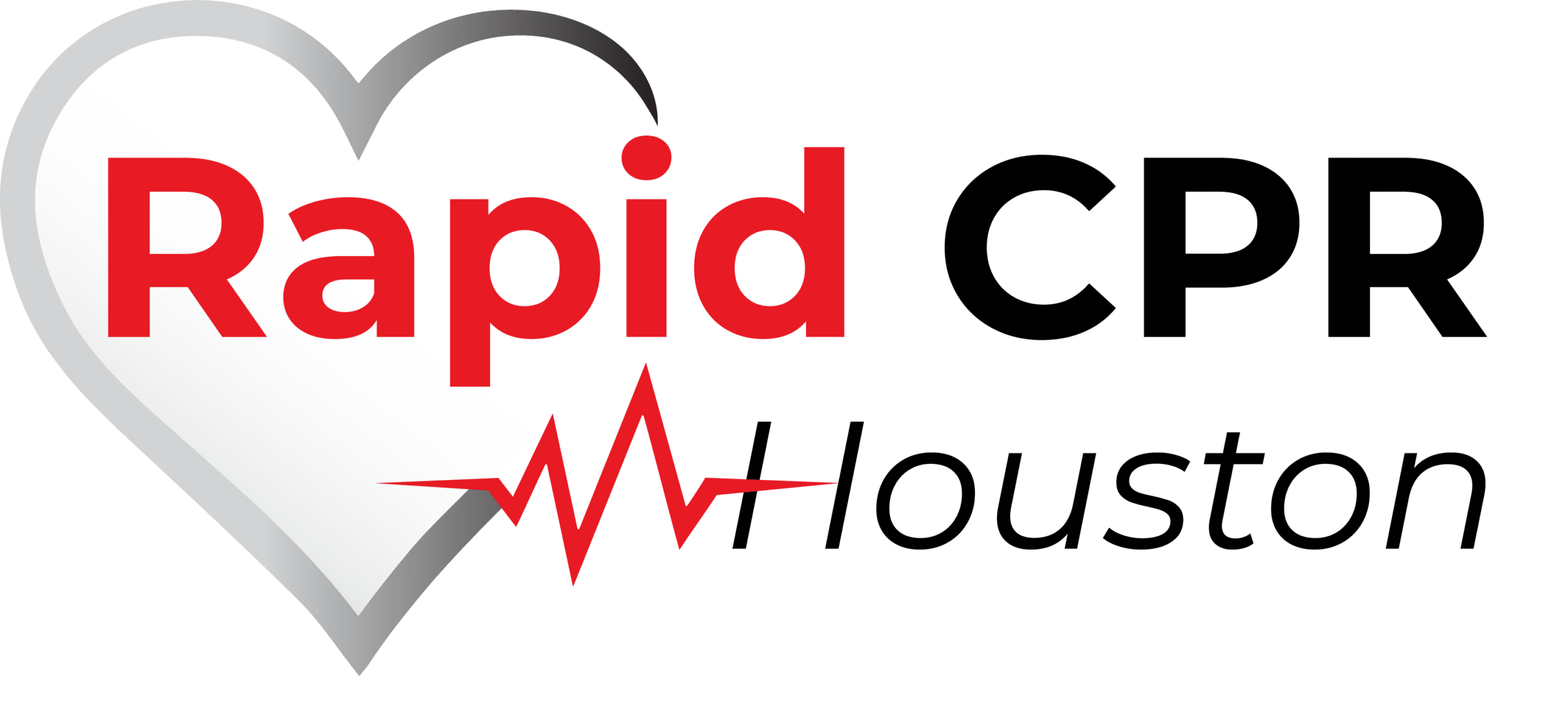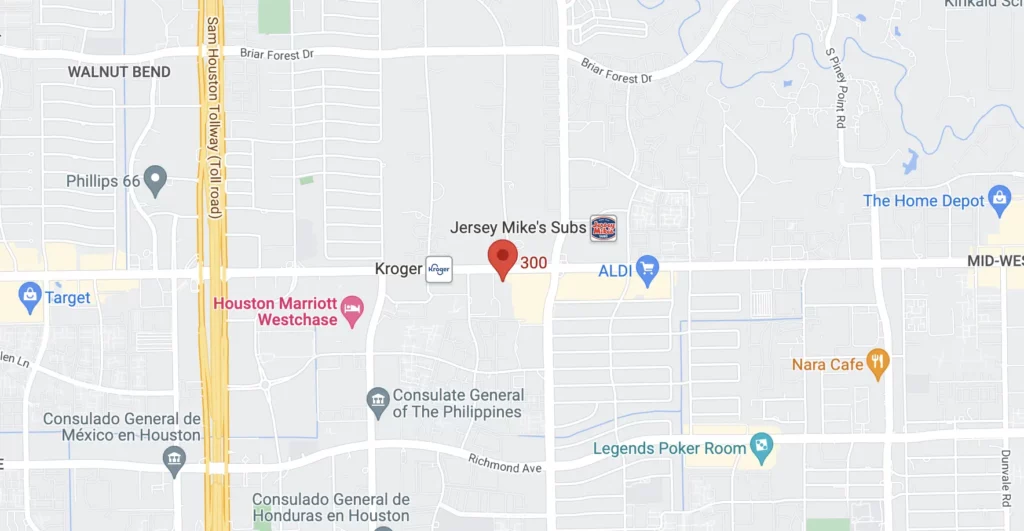CPR certification is a key component of any healthcare provider’s work, and yet it’s often time-consuming and inconvenient to keep your certification up-to-date. Thankfully, Rapid CPR Houston is providing a solution to this dilemma! Over the years, Rapid CPR Houston has become renowned within the Houston medical community for making certification fast and easy, providing convenient renewal options to help you maintain your certificate. In this blog post, we’ll cover Rapid CPR Houston’s AHA certification renewal program, outline the benefits of staying certified, and provide a few tips for success. So, if you’re looking to renew your AHA CPR certification quickly and easily, then this post is for you! Let’s get started.
What is the Renewal of AHA CPR Certification?
Renewal of American Heart Association CPR Certification is the necessary process of keeping a CPR certificate up-to-date, ensuring that professionals are up-to-date with the latest standards and practices set by the American Heart Association. With continued medical research and ever-evolving technology, medical practitioners must stay up-to-date on best practices for patient care. Renewing an AHA CPR certification quickly and easily with Rapid CPR Houston is a great way to guarantee that individuals are properly trained and certified for their profession.
Proponents of the renewal of AHA CPR certification cite its importance in ensuring quality care for patients. It is essential that medical practitioners remain informed of the most current technologies, methods, and protocols so they can provide the best possible care for their patients. Having a current AHA CPR certificate is also important if one wishes to work in a certain field; maintaining valid credentials makes certain an individual meets all standards and qualifications necessary for working in their chosen specialty.
On the other hand, some have voiced concerns about the high cost associated with renewing certifications as well as the time commitments needed for recertification courses. There are organizations like Rapid CPR Houston that offer more affordable and convenient renewal courses. However, this may be a viable solution for those worried about time or financial constraints.
Maintaining an AHA CPR certification ensures clinicians are equipped with the knowledge required to respond quickly and correctly in life-threatening scenarios; this includes recognizing symptoms of a heart attack or stroke as well as knowing how to perform high-quality chest compressions when needed. With Rapid CPR Houston’s efficient service, healthcare professionals can rest assured that their certification will remain valid without having to worry about costly fees or difficult processes. As such, it is clear why the renewal of AHA CPR certification is an important step in any healthcare worker’s training regime; transitioning to the next section detailing the exact requirements necessary for the successful renewal of such certifications will provide further insight into this crucial topic.
Requirements for Renewal of AHA CPR Certification
When it comes to renewing the American Heart Association CPR certification, there are specific requirements that must be met in order to continue being certified. In all states, healthcare professionals must successfully complete a course every two years, which consists of four hours of training, in order to renew their certification. This is designed to keep healthcare professionals up-to-date with the latest information in order to ensure their ability and knowledge of how to properly administer CPR. It is important to note that there are varying requirements for the type of training and/or instruction offered based on the individual state where the qualifying teacher or healthcare professional resides.

In addition, those who have taken several classes and courses from the American Heart Association may become eligible for shorter, recertification literacy tests with some tasks. Regardless of which renewal option is chosen, passing these tests successfully will equate to the successful completion of CPR recertification. No matter what a person chooses as their qualification option, Rapid CPR Houston will help meet their current CPR requirement by offering top-of-the-line instruction at flexible times and locations.
Ultimately, it’s important for healthcare practitioners to stay updated and informed about their continuing education requirements in order to maintain safe practices and a competitive advantage in the medical field. By stressing these necessary steps when it comes to maintaining one’s AHA CPR certification, they can easily waive any lapses that might otherwise occur while simultaneously getting access to quality training from knowledgeable, reputable providers, along with some possible time savings due to shorter recertification exam options available when applicable.
- According to the American Heart Association, basic life support (BLS) or Healthcare Provider (HCP) certifications typically need to be renewed every 2 years.
- Rapid CPR Houston offers BLS and HCP recertification courses that are valid for 2 years and provide hands-on skills training.
- A study published in 2019 found that healthcare providers who receive regular instructional reviews regarding up-to-date American Heart Association guidelines have a higher rate of successful resuscitation outcomes.
Attendance Requirements for CPR Courses
When it comes to the seamless renewal of AHA CPR certification, many individuals wonder about the attendance requirements that must be met for CPR courses. Generally speaking, most major providers of AHA CPR certification, such as Rapid CPR Houston, require participants to complete their particular course within a certain amount of time as well as comply with a certain percentage of attendance in order for the certification to remain valid.
To stay within the guidelines set by the American Heart Association and other governing bodies, attendance at an AHA-accredited class is taken very seriously. It is very important to understand that depending on the institution offering the service (i.e. classroom certificates or offsite certifications), certain expectations regarding attendance may vary.
For those seeking alternative methods of completing CPR courses, many companies, such as Rapid CPR Houston, also offer off-site services that can significantly reduce the amount of time needed to renew certifications. However, these methods also require participants to maintain 100% attendance in order for their course completion to be counted towards credit fulfillment, making this method ideal for individuals with busy schedules who may not be able to attend weekly or monthly classroom sessions but still need to stay up-to-date with their qualifications.
With understanding and compliance with attendance regulations being paramount to meeting credit requirements for American Heart Association certification renewal, it is important for all individuals aiming to complete the necessary CPR training courses to be aware of any policies set by their particular provider before beginning the process.
Regardless, if you choose traditional classrooms or more modern techniques such as offsite completion solutions offered by companies like Rapid CPR Houston, ensuring you meet all attendance requirements beforehand will make your life much easier further down the road when it’s time for certification renewal once again. With that being said, let’s cover some basic educational topics related to AHA standards and what should be familiarized before the commencement of any approved certification course or seminar.
Educational Topics Familiarization Required by the AHA
When it comes to educational topic familiarization, the American Heart Association requires a comprehensive understanding of the equipment in order for medical professionals to renew their AHA CPR certification. The American Heart Association has specific expectations for the mastery of topics such as rescue breathing, choking techniques, and automated external defibrillator (AED) usage. Understanding these subjects is critical for keeping up with vital changes in healthcare best practices.
A common debate is whether or not memorizing large swaths of information distracts from effective patient care on an individual basis. This argument holds that a broad familiarity with topics can allow practitioners to better diagnose any given situation and react accordingly, meeting AHA standards without needing to know every minute detail. On the other hand, some argue that, especially in emergency scenarios, in-depth knowledge creates a greater level of safety and security for those receiving aid. Regardless of which side is correct, regardless of which side is taken, all parties must agree that practitioners attending renewal training must be comfortable with their level of understanding regarding rescue breathing, choking techniques, and AED usage before beginning treatment on medical professionals and patients alike.
Attendees at AHA-approved renewal training may be presented with new information about CPR protocols that they were unaware of before attending the course. Knowing this subject matter can dramatically improve the efficacy of any resuscitation attempt and bolster confidence among care providers. To attain certification quickly and easily through Rapid CPR Houston, medics should adequately prepare ahead of time by being familiar with educational topics required by the AHA so that they are one step closer to renewal success. With proper preparation, renewing your certification in Houston can become a painless process for healthcare professionals looking to provide life-saving services across many disciplines.
Where to Get Renewal Training in Houston
Although there is a vast array of educational topics to familiarize yourself with as required by the AHA to keep your CPR certification up-to-date, the challenge is finding where to get renewal training. In Houston, there are numerous options for getting AHA-certified renewal courses. Training centers, universities, firehouses, and hospitals offer different classes, depending on individual needs. Some of these classes are offered offsite of the training center as well. Certain places may also offer refresher courses that specifically review often-forgotten information or skills from prior classes.
When considering where to go for a renewal course, it is important to be sure that the center or institution teaching the course is American Heart Association accredited and will provide you with a valid certificate at the end of the class. This can generally be done by doing research online or contacting CPR providers directly. Furthermore, it is important to make sure that the time frame fits within your schedule and your budget since some courses are more expensive than others.
Of course, another option to consider is Rapid CPR Houston, which can provide high-quality AHA CPR certification both on its premises and in an offsite format for busy working professionals. Many people prefer this convenient method because they can complete their certificate at any time and at their own pace rather than committing to attending a long-duration group session, which might conflict with their hectic schedule.
Finding an ideal option for AHA CPR certification renewal in Houston has never been easier! With a variety of options and convenience presented by Rapid CPR Houston, potential candidates no longer have to take time off from work activities or commute long distances in order to gain updated knowledge on life-saving techniques for emergency cardiac care.
Finding a Reliable CPR Provider in Rapid CPR
Finding a reliable CPR provider in Rapid CPR is crucial to completing your renewal training in Houston. When looking for a provider, there are some factors that should be taken into consideration before signing up for a course. First and foremost, look for a facility that offers quality instruction from an experienced and knowledgeable instructor. If the instructor lacks the proper credentials or expertise, they will not be able to effectively train students on the intricacies of cardiopulmonary resuscitation. Additionally, check to make sure the facility provides updated and relevant materials that are consistent with AHA regulations. This ensures that students will receive the most up-to-date and accurate information available.
Some people may also argue that cost is an important factor when considering a CPR provider. Granted, budgeting is always something to think about; however, it should not be the primary concern when making this decision. It is worth spending a little extra money on a qualified instructor who can give you the best training possible and equip you with the tools you need for successful certification renewal.
Once the necessary research has been done and you have found a reliable CPR provider in Houston, it is time to focus on preparing for the exam portion of the renewal process. Transitioning to this stage of the process requires knowledge of the components involved in passing the examination and understanding how best to approach them in order to ace your exam and receive your renewed certificate quickly and easily.
Final Words
Rapid CPR Houston provides a fast and hassle-free solution for renewing your American Heart Association CPR certification. Their efficient process and expert instructors make updating skills quickly and painlessly; giving you peace of mind knowing you have up-to-date CPR techniques and protocols under your belt. Don’t put off renewing your certification; choose Rapid CPR Houston now for an effortless certification experience that could save lives in just minutes! Contact us today to schedule your appointment at 832-523-9827.





